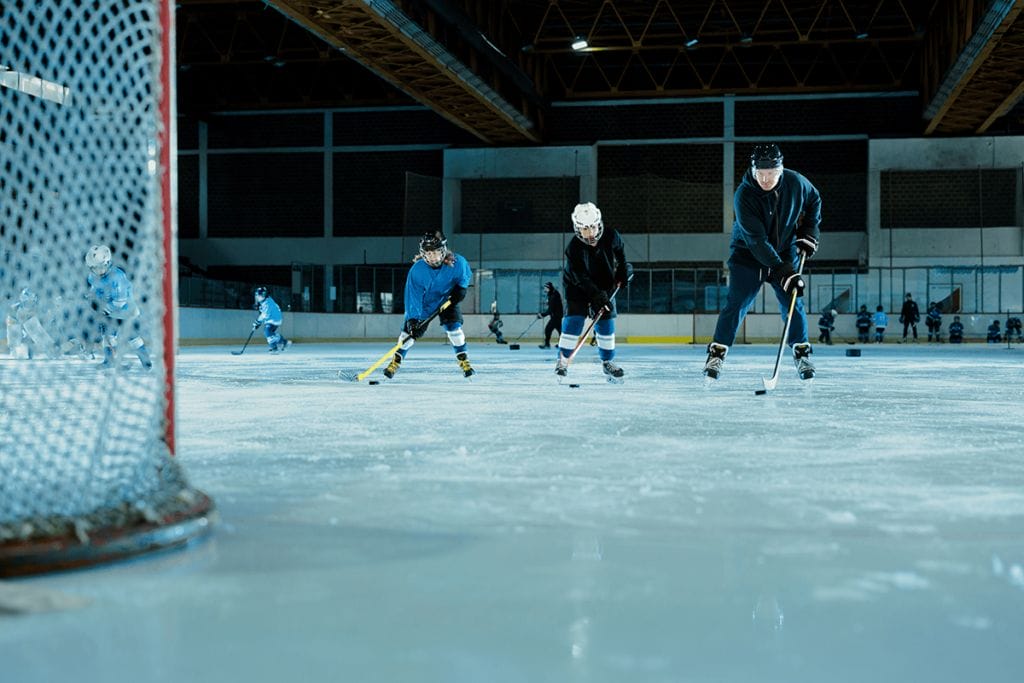Hockey is an incredibly skilled sport. The speed of the game, the complexity of play, and the physical contact that occurs all combine to create a sport that requires immense skill and athleticism. As a result, a strategic approach to off-season youth hockey training is essential.
The key is to focus on developing the skills that are specific to hockey. skating speed, agility, and stamina are all important, but so are puck-handling skills, shooting accuracy, and decision-making ability. By focusing on these specific skills, young hockey players can ensure that they are prepared for the rigors of the season and can make a significant impact on their team’s performance.
This can be done by participating in drills that are specific to the skill being worked on, or by attending a youth hockey training program that focuses on developing all aspects of a player’s game.
Whatever approach is taken, it is important to remember that the goal is to improve as a player and help the team win. With this in mind, every player should approach off-season training with a dedication to becoming the best they can be.
If you’re a young hockey player looking to take your performance to the next level, check out these tips for off-season training:
1. Develop Your Skating Speed
One of the most important aspects of hockey is skating speed. The ability to move quickly and efficiently across the ice is essential for both offensive and defensive players. As such, it is important to focus on improving skating speed during the offseason.
This can be done by participating in specific skating drills that focus on leg strength and power. Interval training is also beneficial for hockey players as it helps to improve both endurance and speed. Skating sprints are a great way to incorporate interval training into your routine.
2. Improve Your Agility
Agility is another important aspect of hockey. The ability to change directions quickly and efficiently can be the difference between making a play and being caught out of position. As such, it is important to focus on improving agility during the offseason.
This can be done by participating in drills that focus on lateral movement and quick changes of direction. Plyometrics are also beneficial for hockey players as they help to improve the explosive power needed for quick movements.
3. Increase Your Stamina
Hockey is a physically-demanding sport. Players need to be able to skate for long periods of time and maintain their energy levels throughout the game. As such, it is important to focus on increasing stamina during the offseason.
This can be done by participating in cardiovascular exercises that focus on endurance. Interval training is also beneficial for hockey players as it helps to improve both stamina and skating speed. Swimming is a great way to incorporate interval training into your routine.
4. Improve Your Puck-Handling Skills
Puck-handling skills are essential for offensive players. The ability to control the puck and make plays is essential for scoring goals. As such, it is important to focus on improving puck-handling skills during the offseason.
This can be done by participating in drills that focus on stick-handling and passing. Scrimmages are also beneficial for hockey players as they help to improve decision-making ability.
5. Increase Your Shooting Accuracy
Shooting accuracy is another important aspect of hockey. The ability to score goals is essential for winning games. As such, it is important to focus on increasing shooting accuracy during the offseason.
This can be done by participating in drills that focus on proper shooting technique. Scrimmages are also beneficial for hockey players as they help to improve shooting accuracy under game-like conditions.
Conclusion
By focusing on these off-season training tips, young hockey athletes can ensure that they are prepared for the rigors of the season and can make a significant impact on their team’s performance.



